Gunja, Croatia
Gunja (Hungarian: Gúnya, Bosnian: Gunja, Serbian Cyrillic: Гуња) is a village and municipality in Croatia.
Gunja | |
|---|---|
| Municipality of Gunja Općina Gunja | |
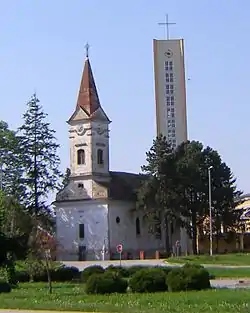 The old church of St. Jacob with the new one in the background | |
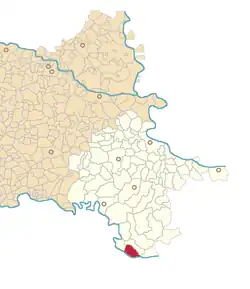 | |
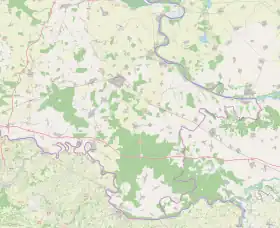 Gunja Location in Croatia 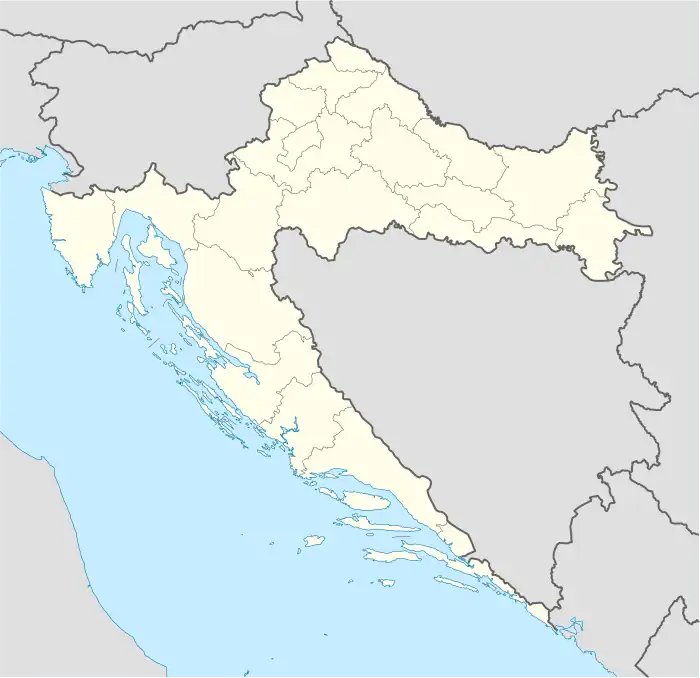 Gunja Gunja (Croatia) 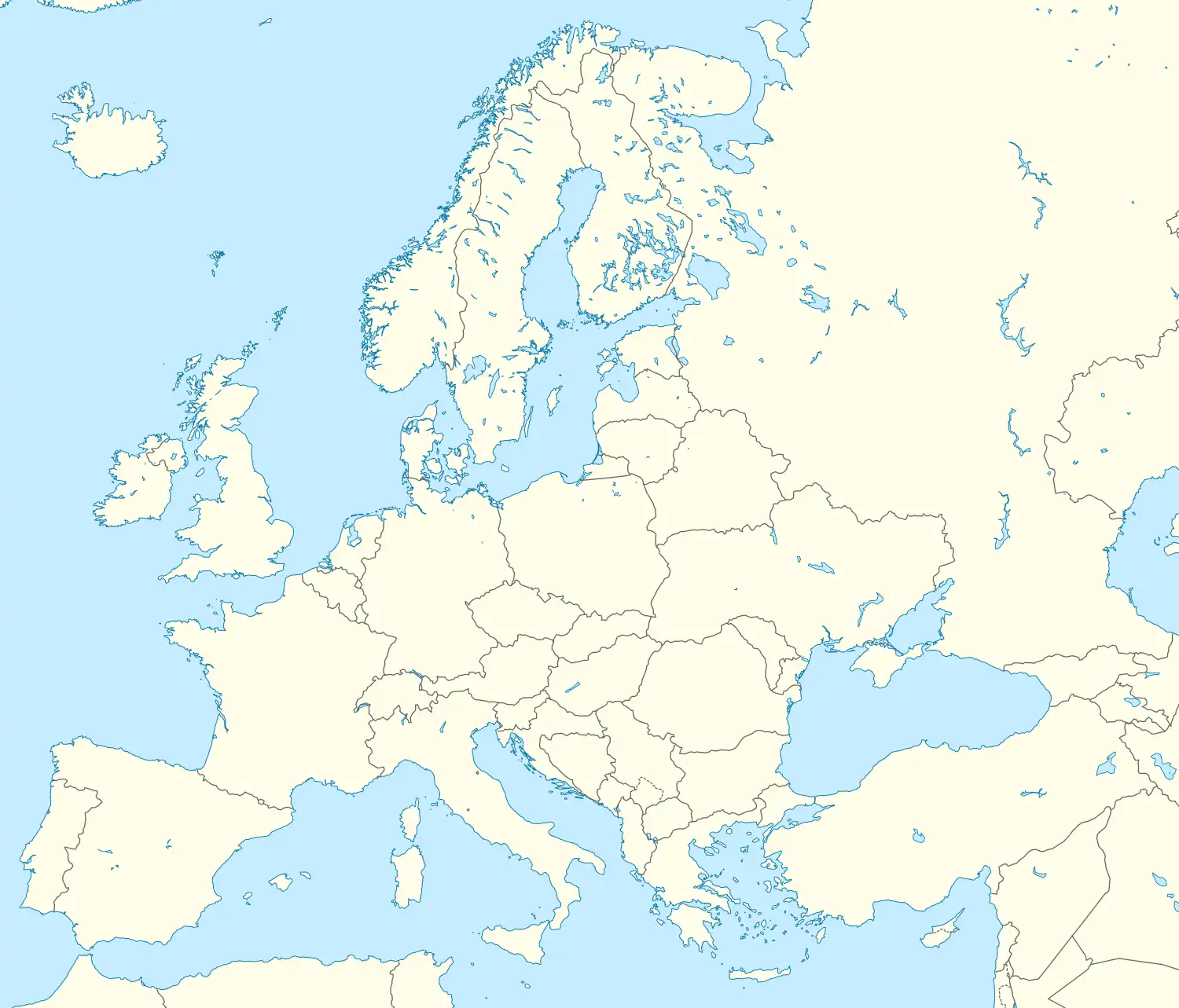 Gunja Gunja (Europe) | |
| Coordinates: 44°53′48″N 18°51′0″E | |
| Country | |
| County | |
| Government | |
| • Municipal mayor | Anto Gutić (HDZ) |
| Area | |
| • Municipality | 31.1 km2 (12.0 sq mi) |
| • Urban | 31.1 km2 (12.0 sq mi) |
| Elevation | 84 m (276 ft) |
| Population (2021)[2] | |
| • Municipality | 2,600 |
| • Density | 84/km2 (220/sq mi) |
| • Urban | 2,600 |
| • Urban density | 84/km2 (220/sq mi) |
| Time zone | UTC+1 (CET) |
| • Summer (DST) | UTC+2 (CEST) |
| Postal code | 32260 Gunja |
| Area code | 32 |
| Vehicle registration | ŽU |
| Website | gunja |
In the 2011 census, the population was 3,732, with 60.13% declaring themselves Croats, 29.69% as Bosniaks, and 3.32% as Serbs.[3][4]
The village lies directly across the Sava river from the city of Brčko in Bosnia and Herzegovina. During the Bosnian War, many Bosniak and Croat citizens of Brčko lived as refugees in Gunja. The village has a mosque, one of few in Croatia. The settlement was founded in the 18th century by settlers from eastern Bosnia.
Gunja was heavily hit by the 2014 Southeast Europe floods, with estimated property damage in excess of €50 million.[5][6]
Politics
Minority councils
Directly elected minority councils and representatives are tasked with consulting tasks for the local or regional authorities in which they are advocating for minority rights and interests, integration into public life and participation in the management of local affairs.[7] At the 2023 Croatian national minorities councils and representatives elections Bosniaks and Serbs of Croatia fulfilled legal requirements to elect 10 members minority councils of the Gunja Municipality yet the Serb council elected only 8 members with Bosniak electing all 10.[8]
Gallery
 Gunja Mosque interior
Gunja Mosque interior Floods in Gunja
Floods in Gunja
See also
References
- Register of spatial units of the State Geodetic Administration of the Republic of Croatia. Wikidata Q119585703.
- "Population by Age and Sex, by Settlements, 2021 Census". Census of Population, Households and Dwellings in 2021. Zagreb: Croatian Bureau of Statistics. 2022.
- "Population by age and sex, by settlements, 2011 census (Gunja)". 2011. Retrieved 16 April 2020.
- "Population by nationality, by city/municipality, 2011 census (Vukovar-Srijem County)". 2011. Retrieved 16 April 2020.
- "Soup kitchen opened in flood-hit Gunja municipality". June 28, 2014. Archived from the original on 15 December 2014. Retrieved 15 December 2014.
- "U GUNJI ŠTETA PREKO 50 MILIJUNA EURA 'Radujem se što će država obnoviti sve stradale objekte'" (in Croatian). HINA. June 11, 2014. Retrieved 15 December 2014.
- "Manjinski izbori prve nedjelje u svibnju, kreću i edukacije". T-portal. 13 March 2023. Retrieved 2 May 2023.
- "Informacija o konačnim rezultatima izbora članova vijeća i izbora predstavnika nacionalnih manjina 2023. XVI. VUKOVARSKO-SRIJEMSKA ŽUPANIJA" (PDF) (in Croatian). Državno izborno povjerenstvo Republike Hrvatske. 2023. p. 15. Retrieved 3 June 2023.

